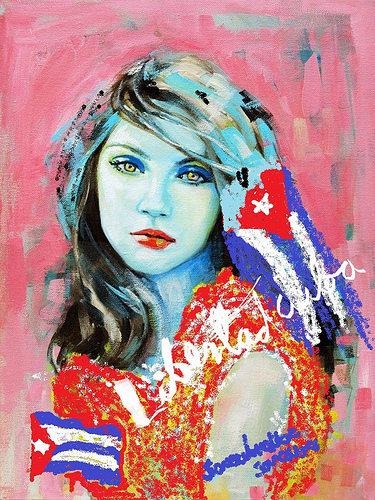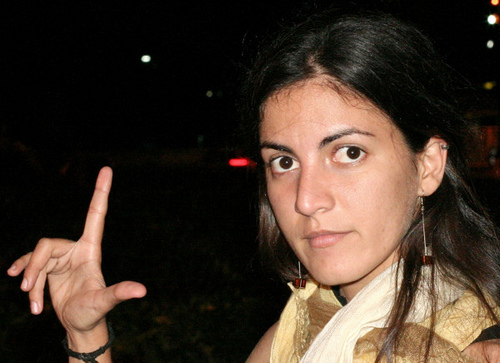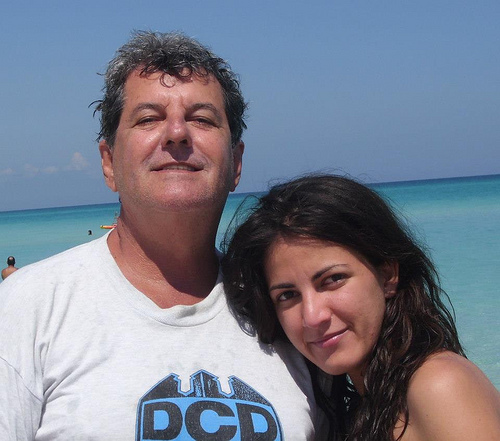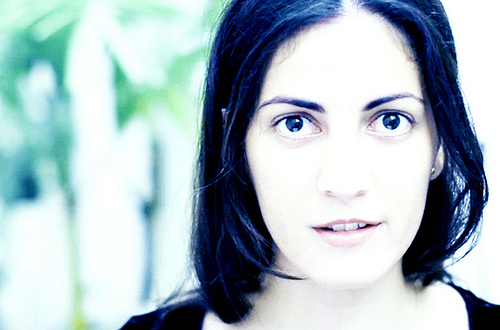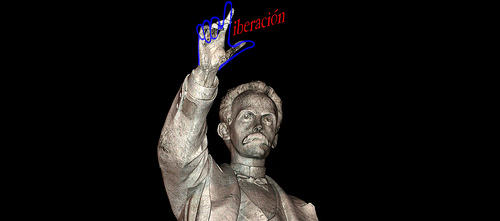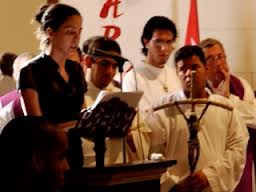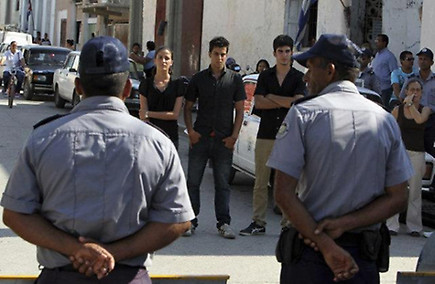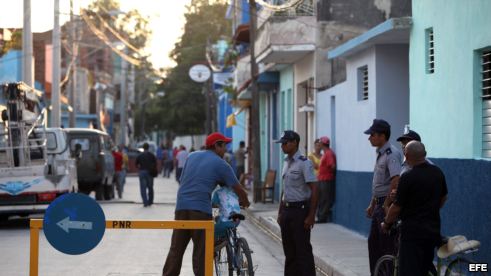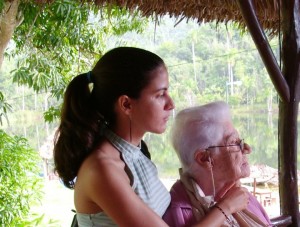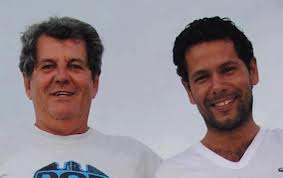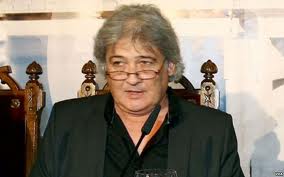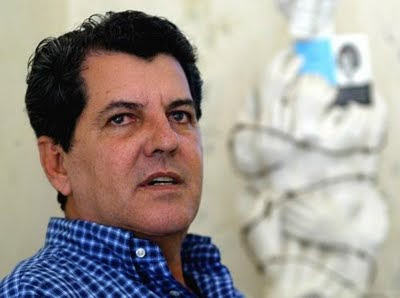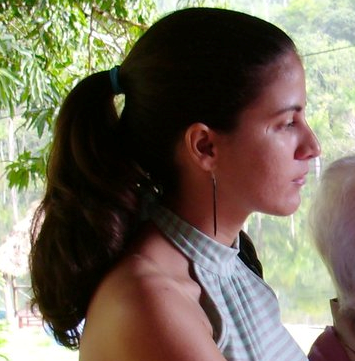 Today, I do not intend to give another version of what happened, we are not accusing anyone at this time.
Today, I do not intend to give another version of what happened, we are not accusing anyone at this time.
The facts I will communicate below were read by Captain Fulgencio Medina, a criminal investigator, in a room at Carlos Manuel de Céspedes Hospital in Bayamo, the evening of Sunday 22 July. I will not narrate how these reports have reached our hands because we do not want to expose to pressure from State Security the people who, in solidarity with our family, have sent us this information.
According to what they told us, Captain Fulgencio Medina read the statements spoken by the witnesses of the events that took the life of my father and Harold; he relayed the following to all those present in one of the rooms of the hospital. The captain said he was going to tell what happened, reading the witness statements, he said.
The witness on the bike and the witness in the tractor said there was a red Lada [a Russian make car] traveling parallel to the wrecked car. For a moment, the wrecked car got ahead of the rest, the bicycle, the tractor and the red Lada, then the pavement ended and the gravel covered terrain started. The cyclist said that all he saw was the dust when the car fell (and that seemed normal to him.) The driver of the tractor commented that it seemed as if something had happened.
The officer said another tractor was coming from the other direction but apparently the road was wide enough and the tractor was far enough away to avoid causing any reaction in Angel’s driving. There was no danger of collision between the two.
The individuals from the red Lada came to the rescue, according to the words of the witnesses on the bicycle and in the tractor. The officer said that the witnesses declared that when the individuals from the red Lada came to aid the Spanish man, he reacted by saying, “Who are you and why are you doing this to us?” First, they took the Spanish man out, and there was another man complaining inside the car (apparently, this was Harold), he had a very sore leg and was touching his own chest, as if it hurt a lot. They did not do anything with the other person because they said that they touched him and realized he was dead.
The individuals from the red Lada took the foreigners out and then they took out a cell phone that they had and said: “Send an ambulance over, there has been an accident.” At that time a blue van arrived and picked up some of the injured and drove them to the hospital.
They received a call from the girl and said they did not know who the phone belonged to because everything was a mess. First a traffic police officer responds and then the coroner speaks. Fulgencio Medina said he knew the daughter had called because the coroner that had been in the ambulance talked to her.
This ends the information we have received about what Captain Fulgencio Medina said that evening in that room where officers and other persons were present.
It seems very strange to us:
1. That a coroner was present in the ambulance.
2. That none of the official versions mention this red Lada or the people traveling in it.
3. If there was no red Lada, who would have called the ambulance? [Translators note: it is not common in Cuba to call an ambulance or have ‘ phone numbers, rather people offer rides to the medical centers.]
4. The reaction Ángel had when he was assisted, according to witnesses.
5. Who determined and how was it determined that my father was dead so early during the events.
We have received other information which narrates that the ambulance was ordered by a lieutenant colonel and that in one ambulance they took Harold to the hospital after making ??a stop at a children’s hospital. We also have information regarding the doctor who attended Harold (nicknamed “The Kid”, son of Dr. Pérez Profet) According to this information he was heard expressing disdain for Harold. He told the other doctors and nurses that these people were bringing drugs to Santiago and that they were planning to plant bombs.
I have questions regarding the care my friend received in the hospital.
We have been informed that Ángel arrived at the hospital accompanied by an officer who said he was an eyewitness to the accident, and that at that point Ángel said twice that the car had been hit from behind.
I wonder, if this officer was a witness:
1. What was he doing at the place of the events?
2. If it was he who called, why didn’t he take the injured men in his car?
3. How did he know the hospital’s phone number?
4. Was he one of the individuals from the red Lada?
I also have doubts regarding the technical condition of the car in which my father and Harold were traveling.
They did not allow our friends, the people who represented our family, to see my father’s body until after 8 pm. They told us that the corpse had a syringe placed at the top of the leg, a shirt, his jeans and shoes and that at that time they saw it, the body was still without any form of conservation treatment, or refrigeration.
Regarding the state of Harold, a physician told our friends that the boy was going to die because he had suffered brain death. This information does not match the official version regarding the cause of death of Harold Cepero. It is also very strange because witnesses claimed they saw a conscious Harold according to information we received about the words read by Captain Fulgencio Medina. Our friends did not have access to the survivors until after Ángel was sedated so they were never able to talk to him. With Aron they were barely able to communicate because they do not speak English.
Aron, Ángel and I met Friday afternoon and talked, as three young people with social concerns converse, without interventionist agendas or money involved.
My father faced the power of a state, a totalitarian state with 53 years of experience. And that state has been bringing all its force to bear against a family, my family, since many years ago. I fear deeply for the lives of my brothers, my mother and my family. I reiterate that I hold the government responsible for the physical integrity of the members of my family.
We count on the support of many within and outside Cuba, we thank you all deeply. On the other hand, we know that these events have become a matter of international affairs, we know that sometimes between governments agreements are reached and they remain silent, but while others will remain silent, we will not, neither will we stop seeking the truth even if it means we will end up alone. My father, the Christian Liberation Movement and my family have been alone before, we are not afraid of loneliness.
We know, because we seem to have been touching it in recent days, that only evil fears the truth.
Translated by Cleonte
August 1, 2012
